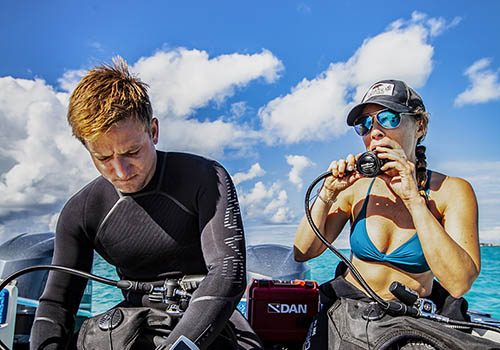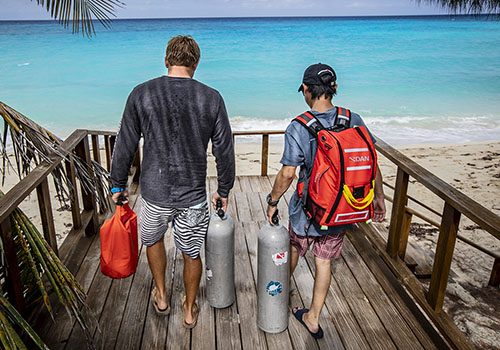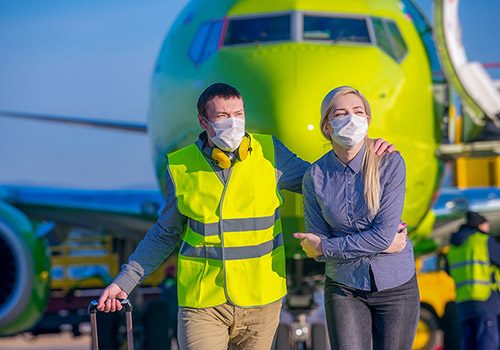The Hazards of Travel
Public health authorities consider the health hazards and risks in a community, including but not limited to injuries and transmissible diseases. The hazard of transmissible diseases exists all over the world, but the risk of being affected with a specific disease depends on whether the disease is endemic, an isolated outbreak, an epidemic or a pandemic. Authorities such as the CDC provide epidemiologic outlooks for specific geographic regions.
- Travelers are exposed to other hazards, including traffic, activity-related injuries, environmental exposure, and limited access to healthcare.
- Divers should consider availability of emergency services at their destinations, including recompression chambers that treat divers.
- Read the U.S. Department of State’s COVID-19 page and the CDC’s Travel and COVID-19 page before you plan any international travel.
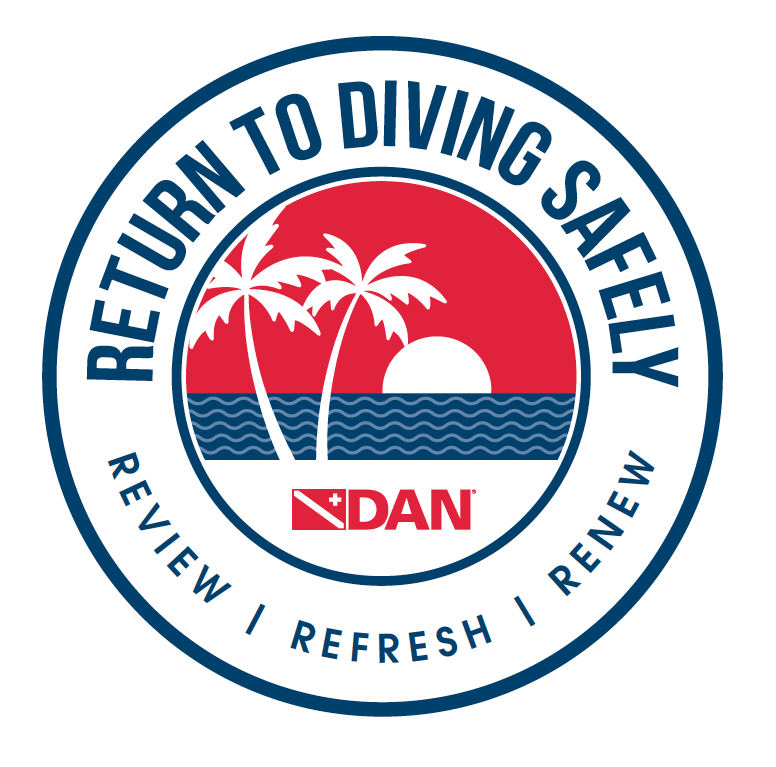
Dive Locations and Safety Requirements
Do your homework before you depart to limit potential issues at your destination.
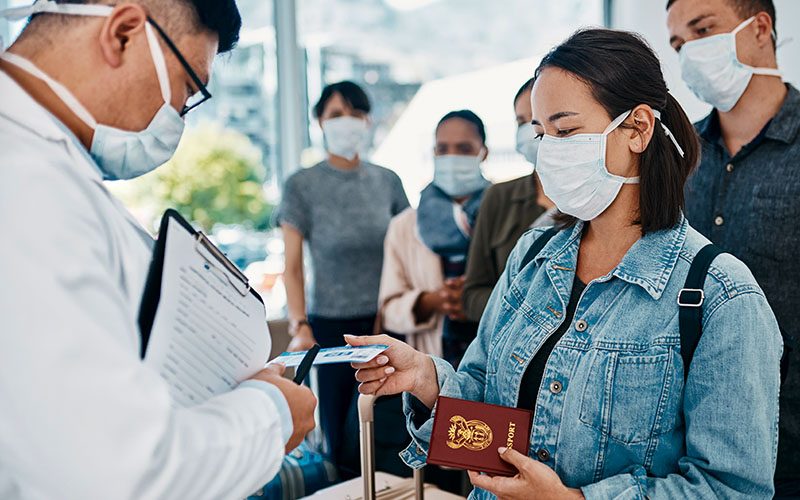
Local Health and Safety Requirements
Whether you are traveling domestically or abroad, do your research before you go. Check local health and safety requirements, travel restrictions, quarantines, recommended vaccinations and tests, etc.
Also identify and evaluate emergency medical care and hospitalization capabilities at your destination, particularly if you have a pre-existing medical condition.
- Determine the status of COVID-19 infection in the area, considering whether the spread of the disease is stable, increasing or decreasing. Find out if any quarantine requirements are in place.
- Learn what documentation is required for entry. Some places may require proof of COVID-19 vaccination, for instance.
- Research the availability and cost of health care services in the area. It is generally good practice to prepare for eventualities, especially when you are headed to remote locations with limited medical services.
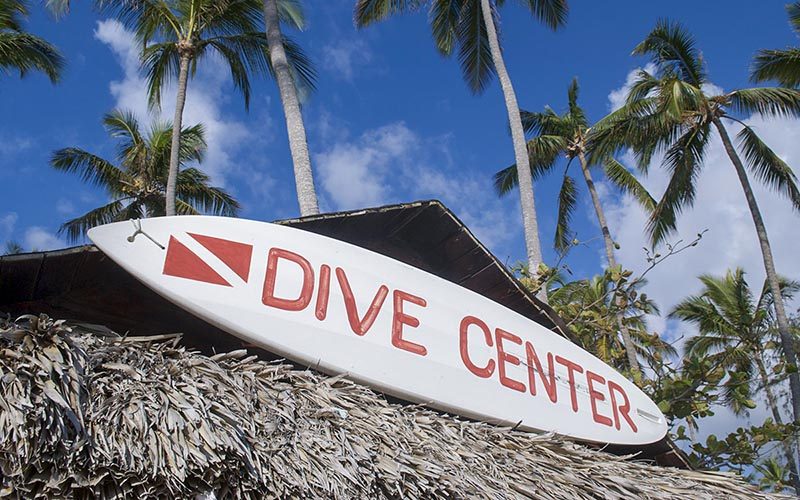
Local Dive Operators
Learn what steps dive operations are taking to make diving safe and enjoyable while protecting your health. They should be able to provide you with enough information to allow you to make good, informed decisions.
- Ask about refresher course offerings.
- Inquire about safety protocols, emergency action planning and emergency training.
- Learn about the type of diving in the area and the level of fitness required.
Confirm Your Dive Accident and Travel Insurance Coverage
Before you embark on adventure, be prepared for the unexpected. Always dive and travel with the proper coverage in place.
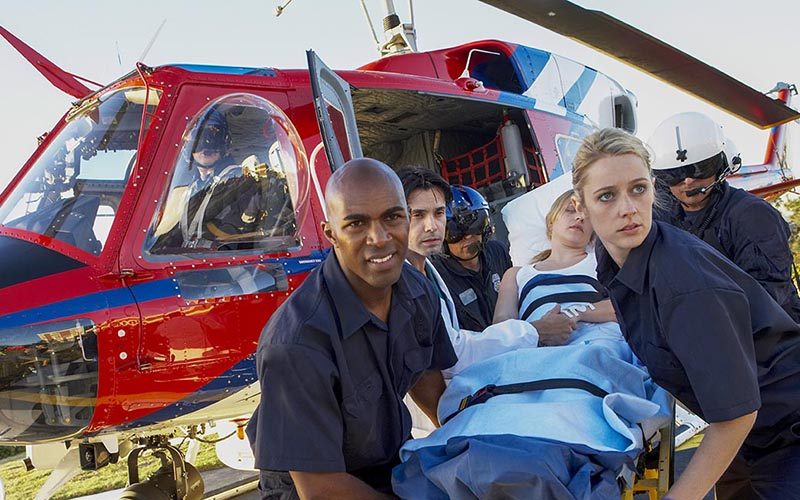
Dive Accident Insurance
Before you go on any trip, make sure you have adequate protection against unforeseen events. Divers know the importance of having dive accident insurance to cover the costs of dive emergencies.
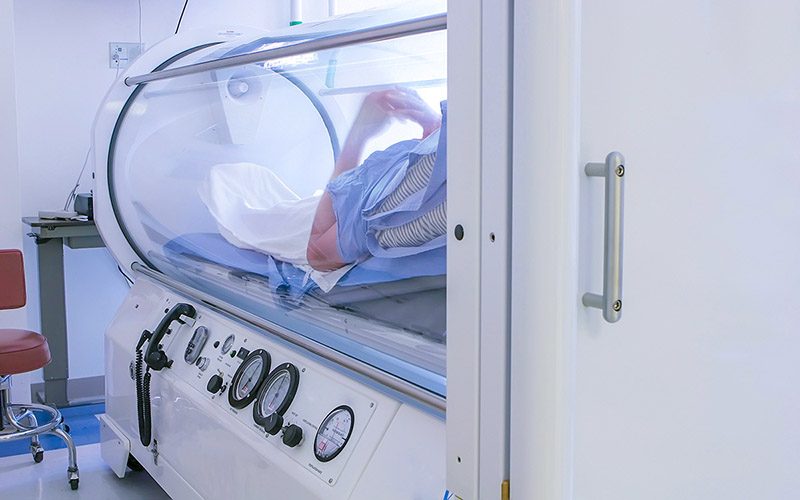
Understand What’s Covered
Your primary medical insurance may exclude diving as a hazardous recreational activity and/or may not provide coverage when you are traveling out of your home country. Even if your primary health insurance does provide coverage, it may pay only a minimal amount for chamber treatments.

Travel Insurance
In addition to dive accident coverage, it is also important to consider purchasing travel insurance for your trips. Some destinations now require proof of travel insurance with medical protection for the duration of your trip to gain entry. Check your destination’s requirements prior to departing for your trip.
Additional Travel Safety Resources
DAN Customer Service
Mon–Fri, 8:30 a.m. – 5 p.m. ET
+1 (919) 684-2948
+1 (800) 446-2671
Fax: +1 (919) 490-6630
24/7 Emergency Hotline
In the event of a dive accident or injury, call local EMS first, then call DAN.
24/7 Emergency Hotline:
+1 (919) 684-9111
(Collect calls accepted)
DAN must arrange transportation for covered emergency medical evacuation fees to be paid.
Medical Information Line
Get answers to your nonemergency health and diving questions.
Mon–Fri, 8:30 a.m. – 5 p.m. ET
+1 (919) 684-2948, Option 4
Online: Ask A Medic
(Allow 24-48 hours for a response.)
